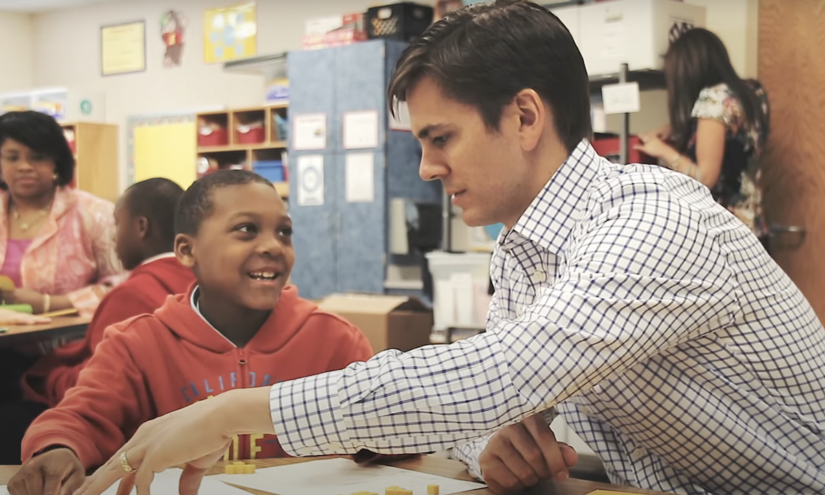During this summer, a team of students from MIT embarked on a journey to the sou …
A Solid Understanding of Math is More Beneficial for Young Learners than Memorization
Jennifer Livingstone

According to Emily Elliot Gaffney, many students lack hands-on experience with numbers when they enter kindergarten, which can result in some students falling behind.
Gaffney argues that memorization is not the best approach for math education. Instead, she believes that games and activities can help students understand that numbers exist in real life. By making these connections, Gaffney believes that students will develop the skills and confidence to solve basic math problems.
Heart Math Tutoring, founded by Gaffney in 2013, trains volunteer tutors to use toys and games to help students understand math. The program initially worked with first through fifth graders in Charlotte, North Carolina, but has since expanded to other districts and schools.
Heart Math Tutoring recently received a $250,000 grant from Accelerate, a tutoring nonprofit, to further expand its program. The organization has also received generous donations from the Charlotte community, totaling over $5 million.
Schools can participate in the year-long program by identifying at least 50 students in need of math intervention. The program costs approximately $75,000 per school, but some schools pay only 5-15% of that amount through agreements with partnering organizations.
Once enrolled, Heart Math sends a dedicated staff member and a team of volunteers to the school four days a week for two hours each day. The staff member oversees the tutoring sessions, while volunteers work one-on-one with students. Each student receives two 30-minute sessions per week.
Prior to starting the interventions, Heart Math assesses students’ math skills to determine areas in need of improvement. The tutoring lasts for eight months, and at the end, Heart Math provides data and progress reports to the schools.
Since its launch, Heart Math Tutoring has served over 5,000 students. According to the program’s website, 97% of students have met their target for academic growth. Last school year, Heart Math served 1,072 students across 28 schools, with 96% showing growth on pre/post assessments.
One of Heart Math Tutoring’s oldest clients is Charlotte-Mecklenburg Schools, which has been working with the organization for 13 years. The district appreciates the academic and personal relationships that tutors build with students and reports positive feedback from teachers.
Heart Math Tutoring’s approach to teaching math focuses on making students active participants in their own learning. Tutors are trained to ensure that students are the ones doing the work, using interactive games and materials to engage students.
Volunteers for Heart Math Tutoring come from various backgrounds and don’t need to be math experts. The program provides training and on-site guidance to prepare tutors for their role.
The activities during tutoring sessions are often described as fun and interactive games, which help build students’ confidence and understanding of math concepts.
Heart Math’s approach is different from traditional math education that places emphasis on memorization of facts. Instead, the program values visual and concrete learning experiences.
Research supports Heart Math’s approach, highlighting the importance of concrete activities in developing students’ math understanding. Experts suggest that children should start by seeing and labeling individual items with corresponding numbers.
Educational professor Jo Boaler from Stanford University believes that students should connect with numbers in the real world to build a deeper understanding of math. She argues that the ability to see numbers in different ways separates high-achieving students from low-achieving ones, who rely on memorization.

